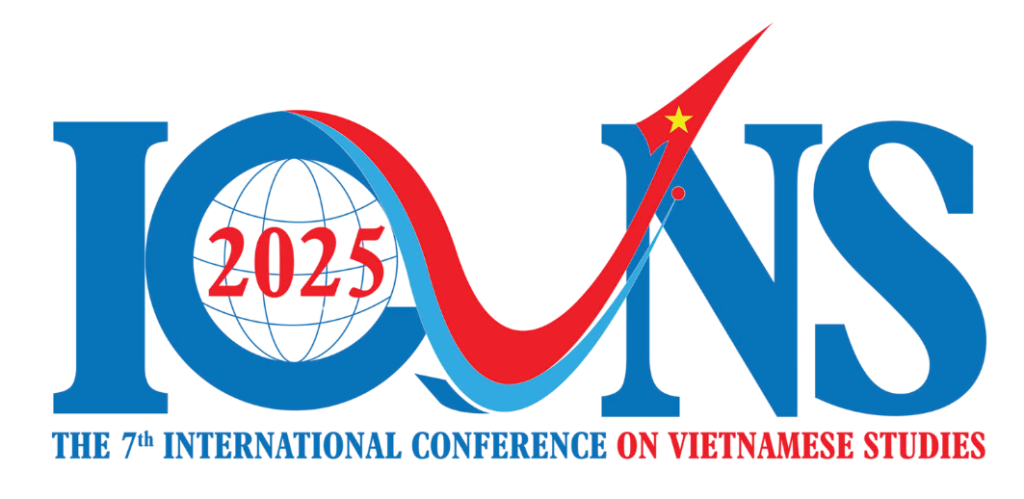Panel 4: National Governance in the New Era
The University of Law, Vietnam National University, Hanoi respectfully invites scientists to write articles and attend the Workshop “National Governance in the New Era” – a thematic workshop within the framework of the 5th Autumn Law Forum (5th VALF), 2025 and at the same time a thematic scientific event within the framework of the 7th International Conference on Vietnamese Studies (ICVNS).
In the context of the world entering the era of digital transformation, deep globalization and increasing non-traditional challenges, the need to innovate the national governance model has become more urgent than ever. The international scientific conference ” National governance in the new era ” was organized to create an academic forum to exchange theories, approaches and practical experiences on modern national governance; at the same time, analyze the requirements for institutional reform, building digital government, and sustainable development in the new context. With the participation of domestic and international scientists, experts and policy makers, the conference aims to propose appropriate legal policy orientations, contributing to improving the effectiveness of national governance, ensuring human rights, promoting sustainable development and international integration of Vietnam in the new development era .
The workshop is scheduled to be held on the morning of August 15, 2025 at the University of Law, VNU, within the framework of the Fifth Autumn Law Forum founded and chaired by the University of Law, VNU.
Anyone interested in the topic of the Workshop can send their abstracts to register before June 10, 2025 to the address: tuandangvnu@gmail.com (Assoc. Prof. Dr. Dang Minh Tuan).
The abstract must not exceed 400 words (including title and keywords). The abstract must be submitted in both English and Vietnamese. The abstract must include information about the author (full name, academic title, position, work organization and contact address, including email and phone number). The abstracts will be reviewed, selected and notified to experts by the Expert Panel within a maximum of 10 days from the submission deadline.
The full text of the article must be between 3,500 and under 9,000 words (including the abstract, citations and list of references) and sent to the same address as the abstract submission address before July 20, 2025. The article must be written entirely in English (preferred) or bilingual in English and Vietnamese. In case the full text of the article does not have an English version, the author may submit a Vietnamese version but must include an English-translated abstract. The results of the selection of the full text article and the program are expected to be announced no later than 10 days after the deadline for submission of articles.
All abstracts submitted for registration and full texts of submitted articles are independently reviewed. After the Forum, the Forum Organizing Committee will continue to review, complete and review for publication in the form of a proceedings book with a publishing code from a reputable publisher according to the list published by the State Council of Professors in 2025 or in collaboration with foreign partners (if the author agrees to publish) to serve training and research activities.
We respectfully invite interested experts and scientists to register to write articles to attend the Conference.
For further information, please contact: Associate Professor, Dr. Dang Minh Tuan, Faculty of Constitutional Law and Administrative Law, University of Law, VNU via Email: tuandangvnu@gmail.com
Best regards.
LIST OF SUGGESTED TOPICS
Group 1: Theory, approaches and strategic orientations in modern national governance
– Fundamental theories and trends in modern national governance approaches ;
– Modern national governance and building a socialist rule of law state in Vietnam ;
– Law-based governance: Transparency, accountability and control of power ;
– National governance and the role of people, social organizations and enterprises in modern governance models ;
– Challenges and requirements for national governance in the new era .
Group 2: Institutions, laws and apparatus reform in national governance
– Streamlining the apparatus in the political system in Vietnam: implementation challenges and solution orientations ;
– Legislative reform (executive, judicial) in the context of national governance innovation in Vietnam ;
– Current institutional bottlenecks in national governance and solution orientation ;
– Innovation in the process of building and promulgating laws in Vietnam ;
– Strengthening State capacity and improving institutional efficiency in the context of globalization and digitalization ;
– Strengthening power control and preventing corruption in a streamlined institutional system ;
– Modern governance institutions: Polycentric model and its applicability in Vietnam.
Group 3: Digital transformation and national governance
– Building digital government in Vietnam ;
– Artificial intelligence, big data and decision making in the public sector ;
– Applying new technologies (blockchain, IoT, metaverse) in state administration ;
– Protecting personal data and governing national digital sovereignty ;
– Legal framework for smart governance and digital governance in key areas (healthcare, education, finance…) ;
– International experience in digital transformation in public administration and reference value for Vietnam.
Group 4: Economic development and international integration in national governance
– FDI attraction strategy in the context of supply chain shift in some countries and experience for Vietnam ;
– Green economy and sustainable resource management in some countries and experiences for Vietnam ;
– Innovation and national startup ecosystems in some countries and experiences for Vietnam ;
– Integration with CPTPP, EVFTA and the issue of adjusting economic institutions and national governance in Vietnam ;
– Non-traditional security governance: climate change, pandemics, cyber security and cross-border migration ;
– Crisis management and response to national emergencies in Vietnam ;
– Applying international law in foreign policy and multilateral governance in Vietnam.
Group 5: Social, cultural, environmental management, sustainable development
– Smart urban management, regional development and integrated planning associated with climate change adaptation ;
– Ensuring access to public services and social justice in urban and rural spaces ;
– Social security and protection of vulnerable groups in the context of population aging and rapid urbanization ;
– Political culture and public ethics in modern governance in Vietnam ;
– Preserving cultural values - identity and managing national image in the digital age ;
– Natural resource governance in Vietnam: Access to rights and responsibilities in law ;
– Just energy transition and cross-sectoral governance: International experience and reference values for Vietnam ;
– Legal mechanism to support the implementation of sustainable development goals (SDGs) in Vietnam.
Group 6: Decentralization, delegation and local governance
– Decentralization and delegation of power between central/local levels (and between local government levels) ;
– Local governance and community self-management in the context of institutional transition in Vietnam ;
– Organizing local government towards urbanization – regional development – reducing intermediate levels in Vietnam ;
– Strengthening grassroots governance capacity and grassroots democracy mechanisms in Vietnam in the new context ;
– Inter-regional governance model and reference values for Vietnam ;
Thematic organizing committee: https://law.vnu.edu.vn/article-Thu-moi-viet-bai-Hoi-thao-khoa-hoc-quoc-te-Quan-tri-quoc-gia-trong-ky-nguyen-moi-41047-4581.html




